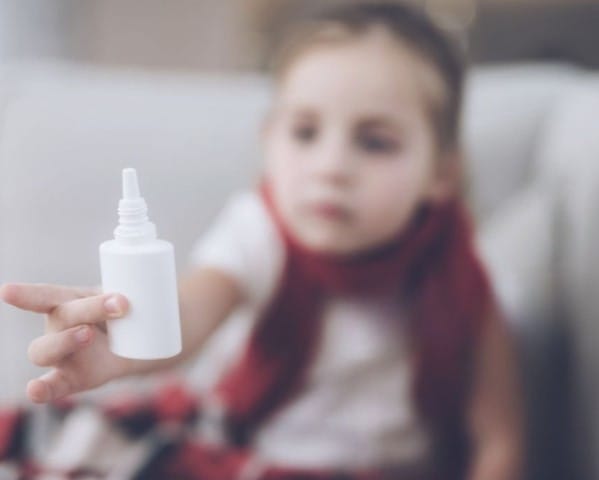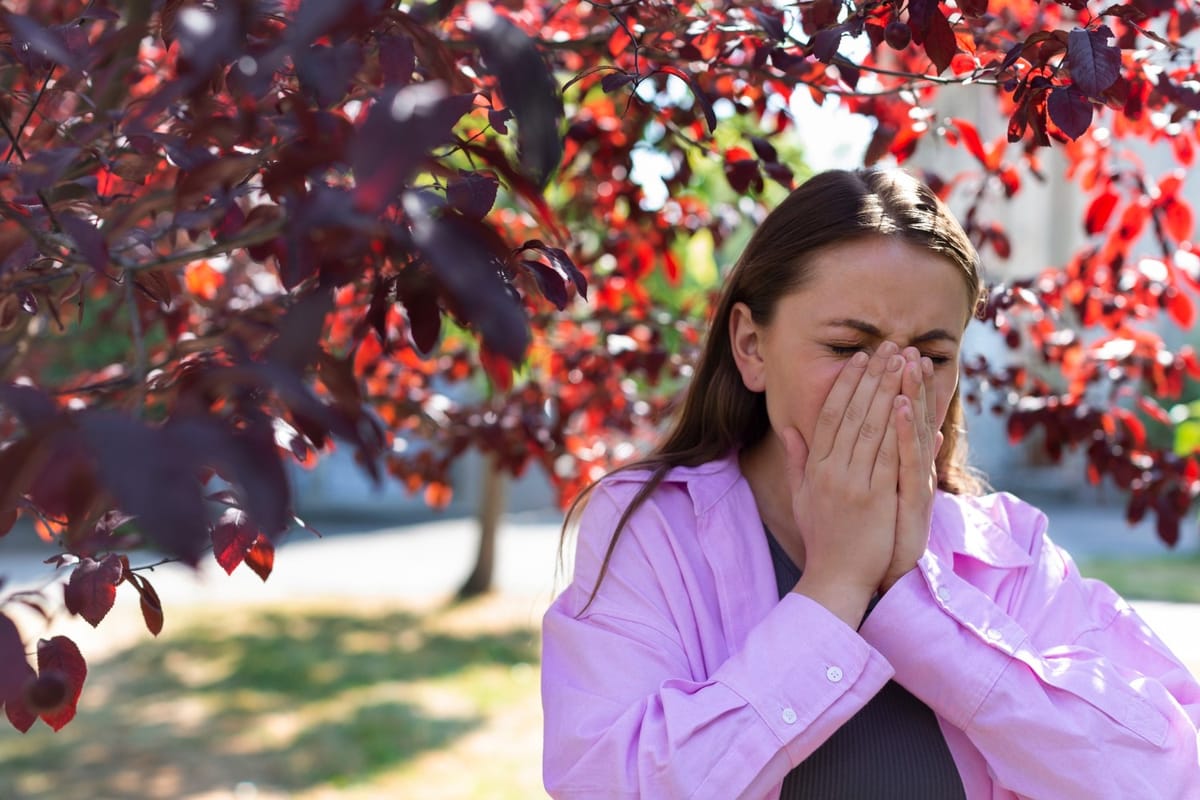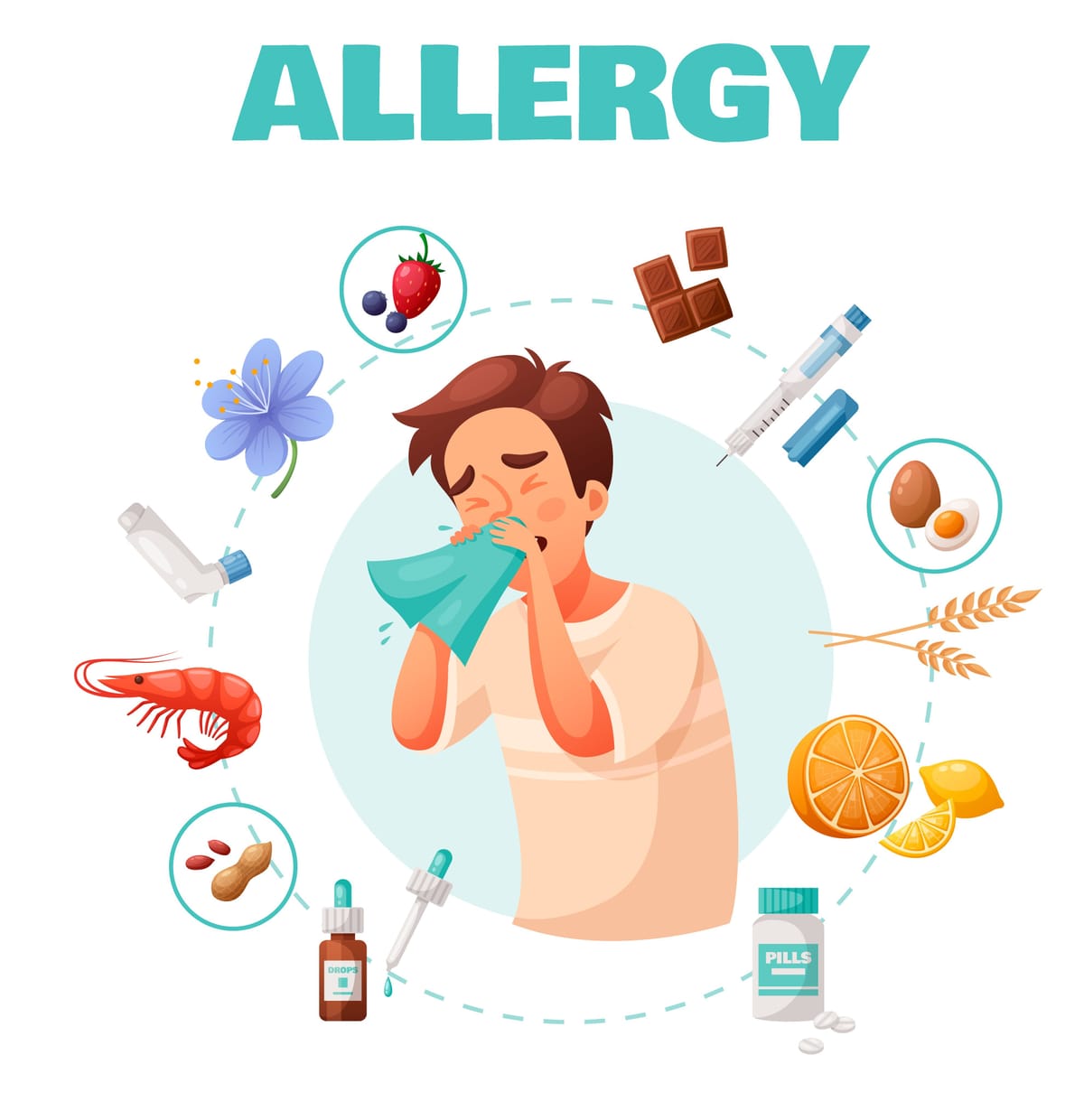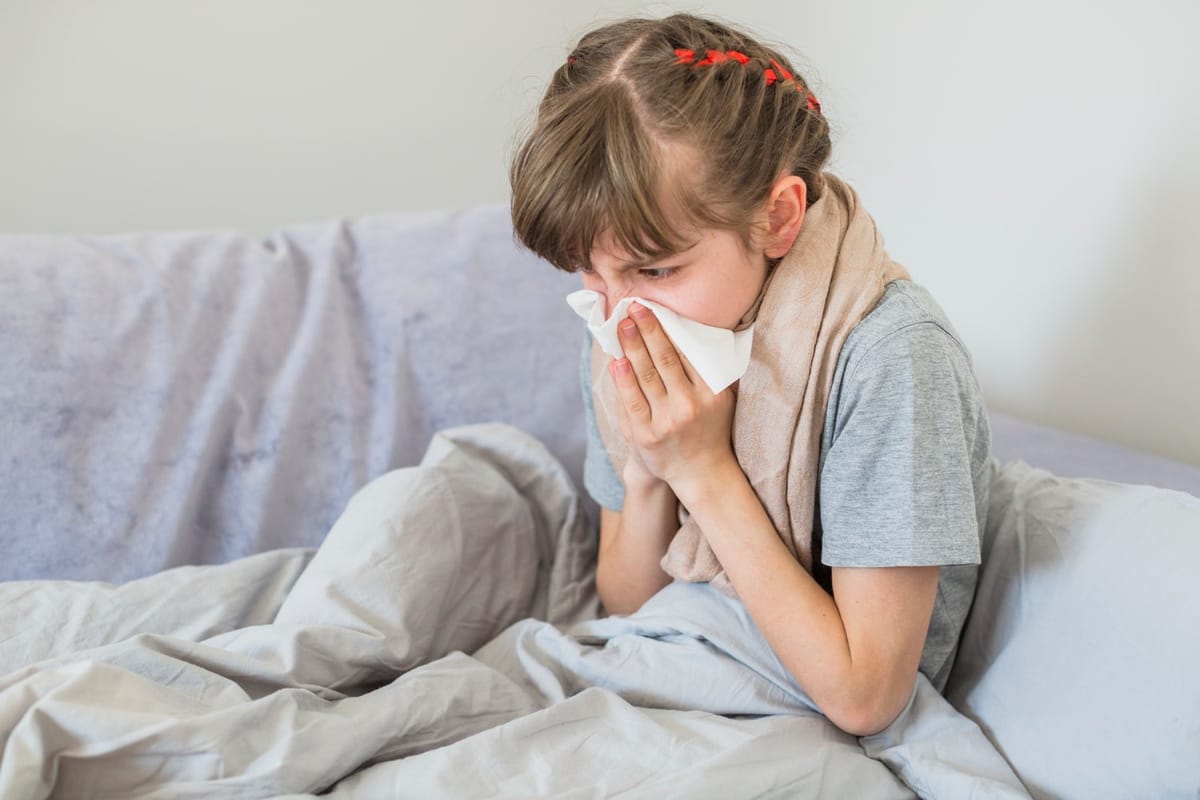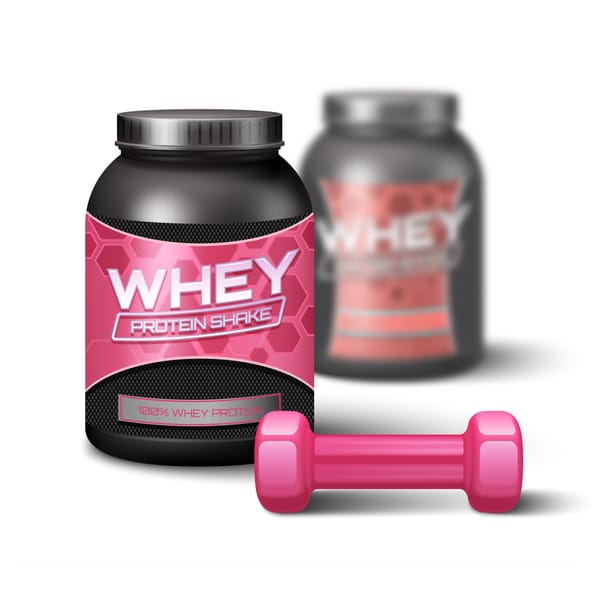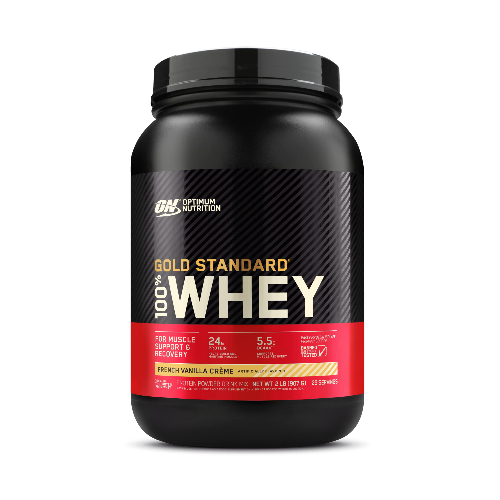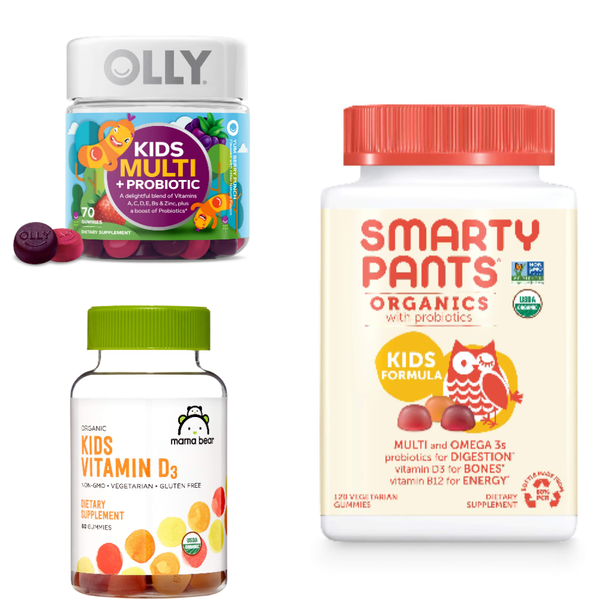Allergies in children can be a source of constant worry for parents, especially during peak allergy season. With the rise of integrative medicine, many are seeking natural remedies for children's allergies to complement or even replace traditional treatments. This article delves into the world of natural allergy remedies, offering practical advice for managing your child's symptoms safely and effectively.
Understanding Your Child's Allergy Symptoms
Allergic rhinitis, commonly known as hay fever, can cause a range of symptoms in children, from red itchy eyes and a runny nose to more severe symptoms like trouble breathing. Recognizing your child's allergy symptoms is the first step in managing their discomfort. Look for signs such as sneezing, red itchy eyes, nasal congestion, and respiratory tract inflammation.
Identifying Common Allergy Triggers
Allergy triggers can vary from pollen counts during spring to dust mites lurking in moist environments. It's crucial to identify what sets off your child's symptoms to avoid these allergens. Keep windows closed during high pollen counts and ensure your home is free from dust mites by regularly cleaning and using damp washcloths for dusting.
The Role of the Child's Immune System
A child's immune system can sometimes overreact to foreign substances, releasing histamine and causing an inflammatory or allergic reaction afterward. Strengthening your child's immune system through a balanced diet rich in anti-inflammatory foods can help relieve allergy symptoms.
Natural Allergy Remedies: What Works?
Natural allergy remedies can range from dietary changes to herbal supplements. For instance, stinging nettle has been shown to help manage allergic reactions by inhibiting the body's ability to produce histamine. Similarly, a saline solution used in nasal irrigation can clear nasal passages of allergens and reduce symptoms.
The Benefits of Saline Solutions
Saline nasal sprays and net pots can be particularly effective in clearing a child's congested nasal passages. These solutions help to thin mucus, making it easier for your child to breathe and reducing the risk of severe allergic reactions.
Herbal Helpers: Stinging Nettle and More
Herbs like stinging nettle can be used to treat allergy sufferers naturally. This plant has been used in traditional medicine to reduce inflammation and may help manage itchy eyes and sneezing associated with allergic rhinitis.
The Power of a Proper Diet
Incorporating foods that fight inflammation into your child's diet can be a game-changer. Foods rich in omega-3 fatty acids, such as salmon and flaxseeds, can help modulate the immune response and potentially reduce the severity of allergy symptoms.
Hydration and Allergies
Encouraging your child to drink plenty of fluids can thin the mucus in their respiratory tract, easing nasal congestion and helping to flush out allergens. Adequate hydration is a simple yet effective home remedy for allergy relief. Embracing the Outdoors: Allergy Management in Nature Spending time outside is vital for a child's development, but for those with seasonal allergies, it can be a double-edged sword. The key is to manage exposure to allergens.
Before your kids head out to embrace the fresh air, check the pollen count in your area—many weather websites provide this information. If pollen counts are high, limit the time they spend outdoors, especially during peak pollen times, typically mid-morning and early evening. Additionally, dressing them in a hat and sunglasses can help keep pollen away from their face and eyes.
When your children come back inside, it's a good idea to have them change clothes and take a shower to wash off any pollen that's hitched a ride home. For particularly sensitive children, consider using a damp washcloth to gently wipe down your child's face and hands after they've been outside.
This simple act can remove allergens and prevent a child's symptoms from flaring up. Remember, the goal isn't to keep your child in a bubble but to reduce their allergen exposure so they can enjoy the outdoors without suffering the consequences.
The Magic of Neti Pots and Nasal Irrigation Have you ever considered using a Neti pot for your child's runny nose red with allergy symptoms? This traditional home remedy involves the use of saline solution to rinse the nasal passages, which can be particularly effective for relieving a runny nose red with irritation from allergies. For older children who can handle the procedure, a neti pot can be a game-changer, flushing out allergens and providing relief. It's important to use distilled or sterilized water to prevent any risk of infection and to follow proper instructions for use.
While neti pots are great, they're not the only form of nasal irrigation. For younger kids or those who might be intimidated by the neti pot, saline nasal sprays are a gentler alternative. They can help keep the nasal passages moist and reduce the body's reaction to allergens. Regular use of saline sprays can be a natural way to keep your child's symptoms at bay without resorting to over-the-counter medications. As always, consult with your child's doctor before starting any new treatment to ensure it's appropriate for their age and health.
The Significance of Omega-3 Fatty Acids
Omega-3 fatty acids are often touted for their numerous health benefits, but did you know they can also play a role in managing your child's allergy symptoms? These essential fats, found in foods like flaxseeds, chia seeds, and fatty fish, can help modulate the body's inflammatory reaction to allergens. By incorporating omega-3-rich foods into your child's diet, you may notice a reduction in inflammation, which is a common allergic response. This natural approach supports the child's immune system, potentially lessening the severity of allergic reactions.
Moreover, studies suggest that a higher intake of omega-3 fatty acids during pregnancy could even decrease the risk of allergies in children. While this doesn't replace the need to consult your child's doctor for personalized advice, it's an encouraging avenue for parents to explore natural remedies for children's allergies. Remember, it's not just about treating symptoms; it's about building a foundation for your child for long-term health, and omega-3s could be a valuable piece of that puzzle for your little one's well-being.
The Impact of Probiotics on Allergies
Probiotics, the friendly bacteria residing in our gut, have garnered significant interest for their potential in alleviating allergies, particularly in children. These microscopic helpers contribute to a healthy gut environment, which is crucial for a robust immune system. By ensuring your child has a balanced gut microbiota, you might help their body cope better with allergens. This can be particularly helpful for food allergies, which are often linked to gut health. Including probiotic-rich foods like yogurt, kefir, and fermented vegetables in your child's diet could be a simple yet effective home remedy.
In addition to dietary sources, probiotic supplements are also available and might be considered, especially if your child's diet is limited. However, it's essential to discuss this with your child's doctor before starting any new supplement regimen. The goal is to support your child's immune system naturally, and probiotics could be a key ally in this endeavor. As research continues to unfold, the link between probiotics and the management of a child's symptoms of allergies becomes increasingly promising.
Apple Cider Vinegar: An Allergy Aid?
Some parents have turned to apple cider vinegar as a natural remedy for allergies. While there is limited scientific evidence to support its use for this purpose, some believe that its potential to boost the immune system could be beneficial for allergy sufferers.
The Importance of Environmental Control
Reducing your child's exposure to allergens is critical. This might mean keeping pets out of certain areas, using air purifiers, or ensuring your child spends less time outdoors during high pollen seasons or allergy season.
When to Consult Your Child's Doctor
While natural remedies can be helpful, it's important to consult with your child's doctor, especially if they experience severe symptoms or if you're considering integrating natural remedies with traditional treatments like allergy shots.
Allergy Shots: A Natural Remedy?
Allergy shots, or immunotherapy, are a long-term treatment that can help reduce your child's allergic reactions. They work by gradually exposing the immune system to larger amounts of allergens, which can help build tolerance over time.
The Role of Cold Compresses
Applying cold compresses to your child's nose and face can help alleviate symptoms like red, watery eyes. This simple remedy can provide immediate relief by reducing inflammation and soothing irritation.
Managing Asthma and Allergies
For children with asthma, managing allergies is even more critical. Natural remedies that reduce inflammation can for seasonal allergies and also help prevent asthma attacks triggered by allergic reactions.
OTC Options: Are They Always Necessary?
While over-the-counter antihistamines can be effective, they often come with side effects like drowsiness. Exploring natural remedies may offer relief without these unwanted effects.
The American College of Allergy, Asthma & Immunology's Stance
The American College of Allergy, Asthma & Immunology recognizes that while some natural remedies may be beneficial, they should not replace professional medical advice or proven treatments.
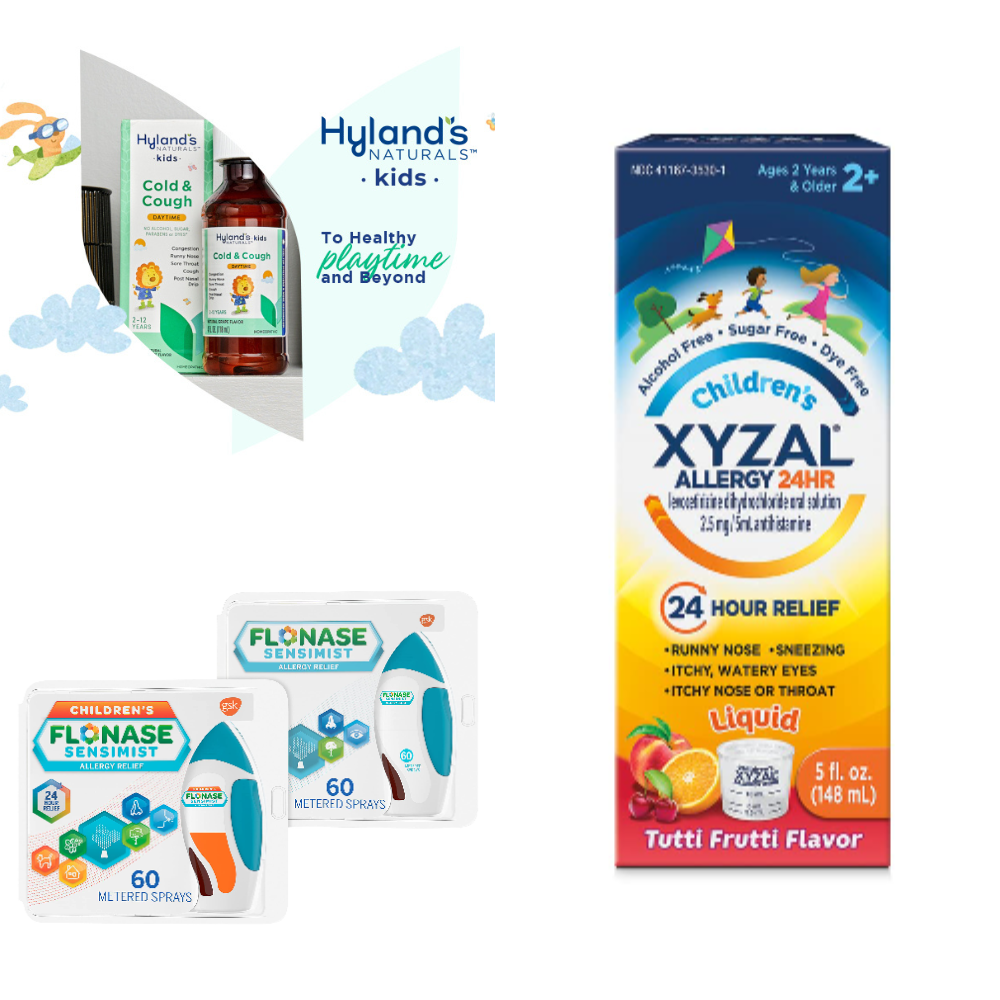

Can natural remedies completely replace traditional allergy medications for children?
While natural remedies can be effective for some children, they should not be seen as a complete replacement for traditional medications, especially in cases of severe allergic reactions. Before making any alterations to your child's allergy treatment plan, it is always advisable to seek guidance from a healthcare professional.
Are there any risks associated with using natural remedies for children's allergies?
As with any treatment, natural remedies can have potential risks or side effects. It's important to use them under the guidance of a healthcare provider, particularly for children, to ensure they are safe and appropriate for your child's specific needs.
How can I determine which natural remedies are best for my child's allergies?
The best approach is to work with a healthcare provider experienced in integrative medicine or a specialist in allergies. They can help you identify the most effective natural remedies based on your child's symptoms, medical history, and specific food allergy triggers.

Natural remedies for children's allergies can be a valuable addition to your child's allergy management plan. From saline solutions and herbal supplements to dietary changes and environmental controls, there are numerous ways to help alleviate your child's symptoms. Always remember to consult with your child's doctor before trying new home remedies, especially if your child has severe allergic reactions or asthma.
